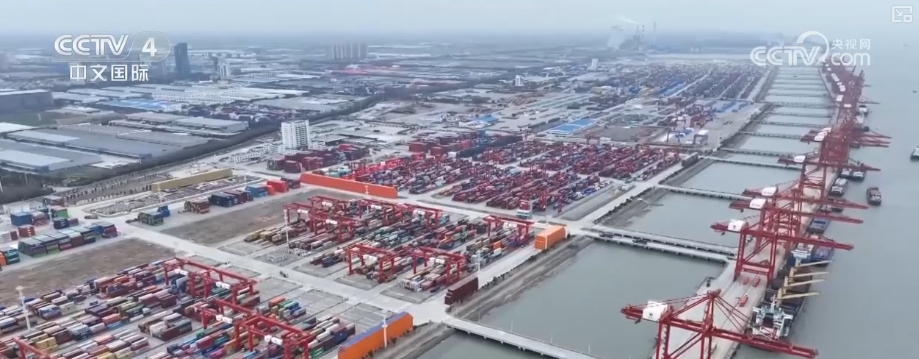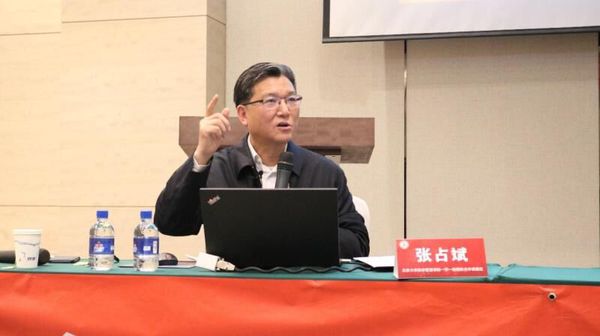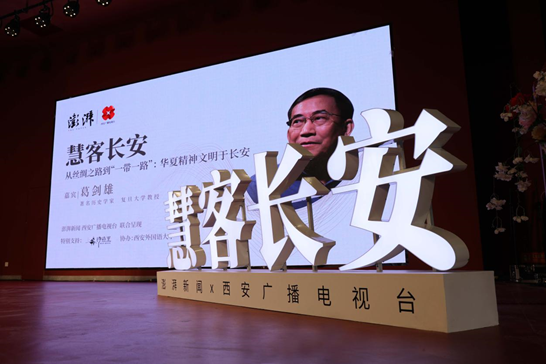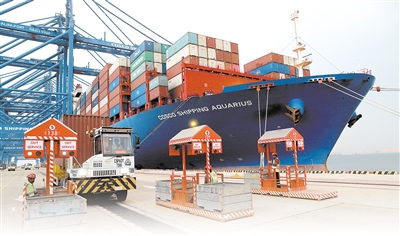China's Science And Technology Helps Jointly Build The "Belt And Road" National Medical Cooperation
China's Science And Technology Helps Jointly Build The "Belt And Road" National Medical Cooperation
Source: Xinhua News Agency, Xinhua News Agency, Chengdu, June 12th. The coordinated efforts of gene decoding of traditional Chinese medicinal materials, joint construction of precision medicine transformation research platforms, AI drug research and development cooperation... At the second "Belt and Road" Science and Technology Exchange Conference held in Chengdu
Xinhua News Agency, Chengdu, June 12th. The coordinated efforts of gene decoding of traditional Chinese medicine materials, joint construction of precision medicine transformation research platforms, and AI drug research and development cooperation... At the second "Belt and Road" Science and Technology Exchange Conference held in Chengdu, scientific and technological cooperation in the field of traditional Chinese medicine became a hot topic among participants.
"Traditional medicine is very popular in Indonesia. China has many new scientific and technological achievements in the modernization of traditional Chinese medicine. We look forward to more traditional Chinese medicine practitioners going to Indonesia to exchange and bring these scientific and technological achievements to Indonesia." On June 11, at the "Belt and Road" Traditional Medicine Cooperation and International Science and Technology Conference on the Modernization of Traditional Chinese Medicine, Lin Qiubo, a traditional Chinese medicine expert from Indonesia, said.
Zhang Boli, an academician of the Chinese Academy of Engineering, said in the keynote report of "Understanding the Integrity and Innovation and Promoting the High-Quality Development of Traditional Chinese Medicine" that day that in order to improve the efficiency of traditional Chinese medicine production, China has developed AI robots, which can reduce costs and improve results. He introduced that researchers use AI to mine text, including patents and literature analysis, and optimize traditional traditional Chinese medicine prescriptions that rely on experience, which is of great significance to the research and development of new drugs.
"I have been studying traditional Chinese medicine for many years. I have come to Hunan, China to study traditional Chinese medicine technology and love traditional Chinese medicine very much. I hope to learn more about China's new technologies and new concepts in the field of medicine." Lin Qiubo said that according to incomplete statistics, there are more than 30,000 herbal medicines in Indonesia, and currently there are three universities related to traditional Chinese medicine, one of which also specializes in teaching modern Chinese medicine acupuncture technology.
Under the guidance of the "Belt and Road" initiative, China and ASEAN countries have deepened their cooperation in the field of health and health. As one of the achievements of this Science and Technology Exchange Conference, the conference released the "China Academy of Engineering-ASEAN Engineering and the "Belt and Road" Traditional Chinese Medicine Cooperation Joint Standalone Document", further deepening cooperation with ASEAN, jointly creating an innovative source of innovation for the integration of traditional medicine and modern science and technology, jointly cultivating a mutually beneficial and win-win traditional Chinese medicine industry ecosystem, and jointly building a high-level talent reservoir for the future.
At present, the concept of precision medicine is gradually being accepted by countries jointly building the "Belt and Road" and China is also actively promoting related cooperation. On June 12, as one of the important activities of this conference, the roundtable for the innovation and development of precision medicine and digital medical was held in Chengdu.
At the meeting, Wu Hong, deputy director of West China Hospital of Sichuan University, officially released 8 international cooperation projects to countries jointly building the "Belt and Road" initiative, including minimally invasive liver technology, thoracoscopy surgery, cutting-edge ultrasound technology and other fields, promoting the co-construction and sharing of international medical innovation achievements.
As a biopharmaceutical company established by China-Thailand joint venture, Cao Sujie, director of Thailand Xingtai Gene, introduced: "We bring China's non-invasive prenatal testing technology to Thailand to promote the development of Thai precision medicine. At the same time, we also cooperate with about 13 universities and research institutions in Thailand to carry out research, involving thalassemia testing, early tumor screening, intestinal microbial research, etc.." At the meeting, Thailand Xingtai Gene signed a contract with Huajing Digital Medical Technology (Chengdu) Co., Ltd. on the spot. In the future, the two parties will carry out in-depth cooperation in digital medical technology research and development, overseas platform construction, market expansion, etc.
"This conference will bring more opportunities for cooperation to everyone, promote more innovative medical scientific and technological achievements to benefit the joint construction of the Belt and Road countries, and contribute to the global health cause." said Adolf Mkenda, Minister of Education, Science and Technology of Tanzania. (Reporter Dong Xiaohong)






